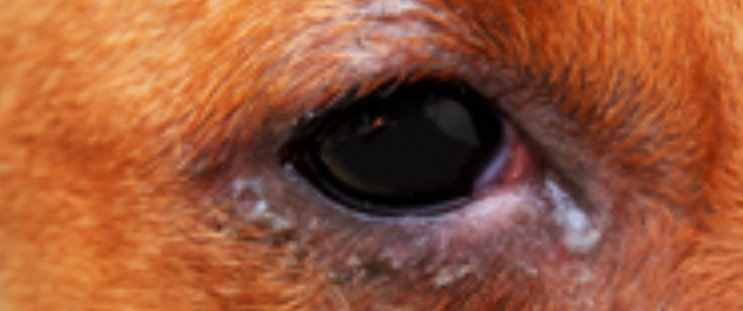
What is puppy conjunctivitis
Puppy conjunctivitis or pink eye, is a condition in which your puppy’s conjunctiva is irritated or inflamed. The conjunctiva is a mucus membrane that covers the front of the eye and lines the inside of the eye.
Your pup’s nictitating membrane also known as the third eyelid, which is found at the inner corner of each eye, is made of the conjunctiva.
A healthy puppy should have pink conjunctiva, though the conjunctiva of some breeds may look red. When your pup’s conjunctiva begins to swell, become itchy, and turn brighter pink or red, you should suspect conjunctivitis.
Symptoms of puppy conjunctivitis

Symptoms of puppy conjunctivitis include redness in the white part of the eye, constant blinking, pawing at the eye, squinting, discharge, red or swollen eyelids, or the surrounding areas of the eyes.
The discharge depends on the cause of the conjunctivitis.
Clear or white stringy discharge is most times caused by allergies, yellow/ green mucus-like discharge is caused by bacterial infections, and clear or white diseases with a little mucus could be caused by a viral infection.
Causes of puppy conjunctivitis
Bacterial infection
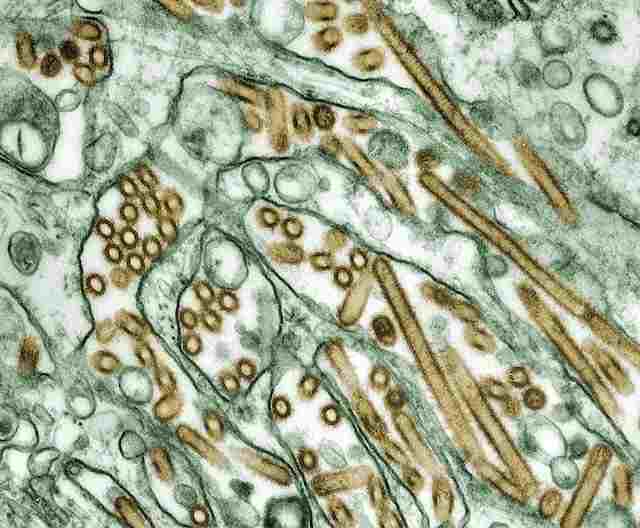
Most times a bacterial infection does not happen independently but it does, this is known as primary bacterial conjunctivitis.
Primary bacterial conjunctivitis in puppies has not been proven to be associated with any particular breed, age, or gender.

In most cases, bacterial conjunctivitis is caused by underlying medical issues, like chronic dry eye, eyelid abnormalities, and corneal ulceration.
Conjunctivitis caused by bacteria is contagious in dogs.
Viral infection
If your puppy encounters any virus that can make the eye membranes inflamed, then they may develop viral conjunctivitis
Allergies
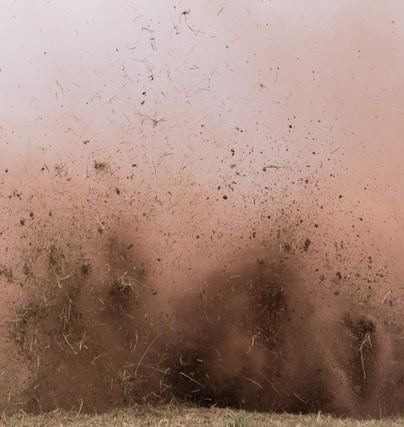
Allergens, such as dust, molds, mites, pollen, perfumes, soaps, shampoos, and any food your pup might be allergic to can cause puppy conjunctivitis.
Though any puppy can develop allergic conjunctivitis, most vets have said that puppies predisposed to atopic dermatitis (an allergic skin condition in dogs that causes itching, redness, fur loss, rough or damaged skin) are prone to have it.
Other causes of puppy conjunctivitis
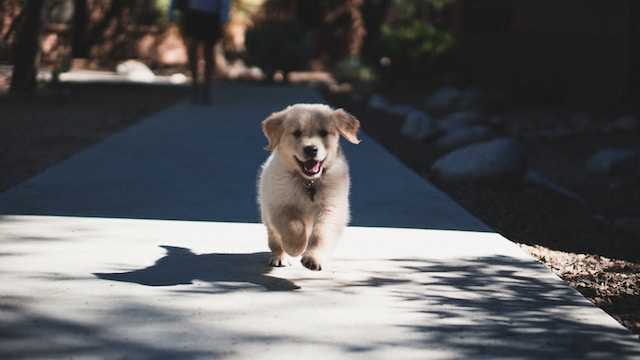
- Tumor on the conjunctiva or eyelids
- Blocked tear ducts
- Dry eyes
- Trauma to the eyes from foreign pollutants or irritants
- Immune-mediated conditions
- Eyelid abnormalities
Treatment for puppy conjunctivitis
The treatment for puppy conjunctivitis depends on the underlying cause.
Treatment for bacterial conjunctivitis in puppies

Most times bacterial conjunctivitis in puppies is treated with topical antibiotics but sometimes oral antibiotics and medications for inflammation may be administered, depending on how serious the infection is.
I suggest you apply terramycin twice a day to your puppy’s eye and the infection would clear within a week.

if you can’t get terramycin, you can use those triple-action antibiotic eye creams.
You can use a sterile saline solution to wash away any mucus in the eyes.
If a puppy’s conjunctivitis exceeds one week without any improvement, you should see your vet.
Treatment for viral conjunctivitis in puppies
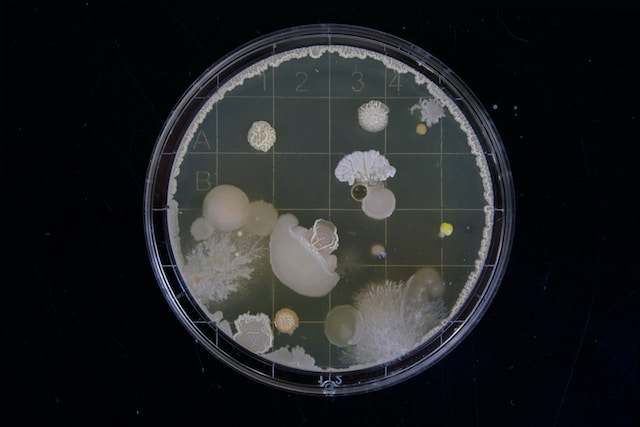
There are no drops or ointments that can treat viral conjunctivitis, the virus has to run its course and this could take up to two to three weeks.
Cool compresses and artificial tear solutions would be used to relieve your puppy of the symptoms.
If your puppy’s conjunctivitis gets worse, your vet may prescribe topical steroid drops to reduce pain from inflammation.
Treatment for allergic conjunctivitis in puppies

Eye ointments and eye drops that contain steroids are often prescribed for the treatment of allergic conjunctivitis in puppies.
If a systematic inflammation is present, your puppy may be given antihistamines and oral steroids.
It is a must that you avoid the underlying allergens affecting your dog because prevention is most important with allergic puppy conjunctivitis.
Your vet may recommend allergic skin testing, flea preventatives, environmental changes, and food trials.
Treatment for conjunctivitis in puppies caused by other factors

If your puppy’s conjunctivitis is caused by eyelid or eyelash abnormalities, your vet would perform surgical correction to avoid chronic issues.
If your puppy’s conjunctivitis is caused by chronic dry eyes, the vet may put your pup on lifelong medication to stimulate tear production.
If your puppy’s conjunctivitis is caused by immune-mediated issues, your dog would require immunomodulatory medications (they are drugs that affect the immune system).
Home remedy for puppy conjunctivitis

Not all conjunctivitis can be cured at home because it could have different underlying causes.
Home remedy for bacterial conjunctivitis
Terramycin or triple-action antibiotic eye creams
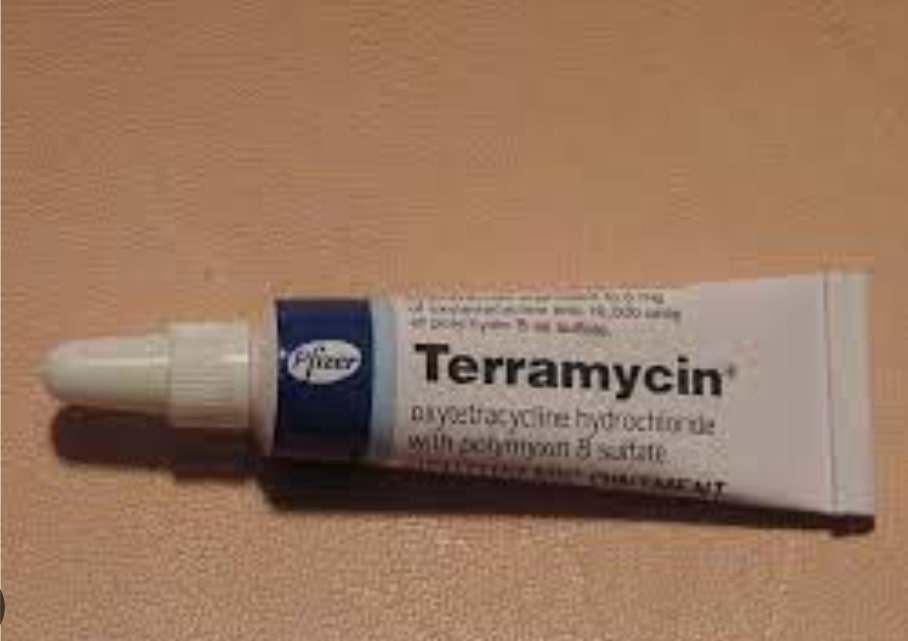
I prefer to use Terramycin but some puppy parents informed me that you need a prescription to get it in some states, so I suggested they can use the triple action eye creams as an alternative.
Pull down your puppy’s lower eyelid, put about a quarter inch of any of the ointments, and close the eyelids for like 2 seconds.
similasan pink eye relief eye drop
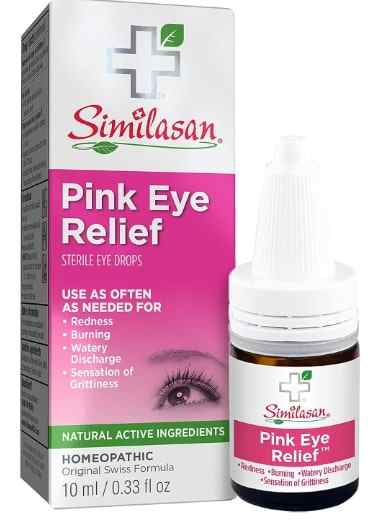
This eye drop helps with conjunctivitis in both humans and dogs.
This eye drop has euphrasia as one of its active ingredients, euphrasia is very active in treating eye inflammation.
Euphrasia contains tannins that help to reduce inflammation and dry up any unwanted secretions. The caffeic acid content is anti-septic. Euphrasia’s iridoid glycosides, such as aucubin, help to counter infection and inflammation.

You should give your pup one drop on the eyes, four times a day.
At the time of making this post, it cost $7.12 for a 0.33 ounces dropper container.
Home remedy for allergic conjunctivitis

Though no home remedy can treat allergies, there are things you could do to make your pup’s eyes feel better.
Warm compresses help to reduce the sticky build-up of discharge on your puppy’s eyelids or crust that forms on their eyelashes, while cold compresses help to relieve itching and inflammation.
Home remedy for viral conjunctivitis

Though no home remedy can treat viral conjunctivitis, there are things you could do to make your pup’s eyes feel better.
Warm compresses help to reduce the sticky build-up of discharge on your puppy’s eyelids or crust that forms on their eyelashes, while cold compresses help to relieve itching and inflammation.
Important information for puppies with conjunctivitis

If your puppy has conjunctivitis, I advise you were them an Elizabeth collar to avoid them from itching the eye and causing more damage.
FAQS about puppy conjunctivitis
Is puppy conjunctivitis contagious?

Yes, puppies can contract bacterial or viral conjunctivitis from each other.
Can puppy conjunctivitis heal on its own?

Bacterial conjunctivitis could start getting better in 5 to 7 days without treatment and can take about two weeks to heal completely.
Viral conjunctivitis could take 7 to 14 days to heal without treatment.
Though some conjunctivitis can heal without treatment, I still recommend you get your puppy treated to reduce pain and speed up the process.
Is puppy conjunctivitis contagious to humans?

Yes, puppy conjunctivitis caused by bacteria or viral infections can be contracted by humans but this rarely happens.
Related post
Puppy swollen eyes – Things you need to know to avoid blindness in puppy
Everything about dog dental sprays and the best dog dental sprays